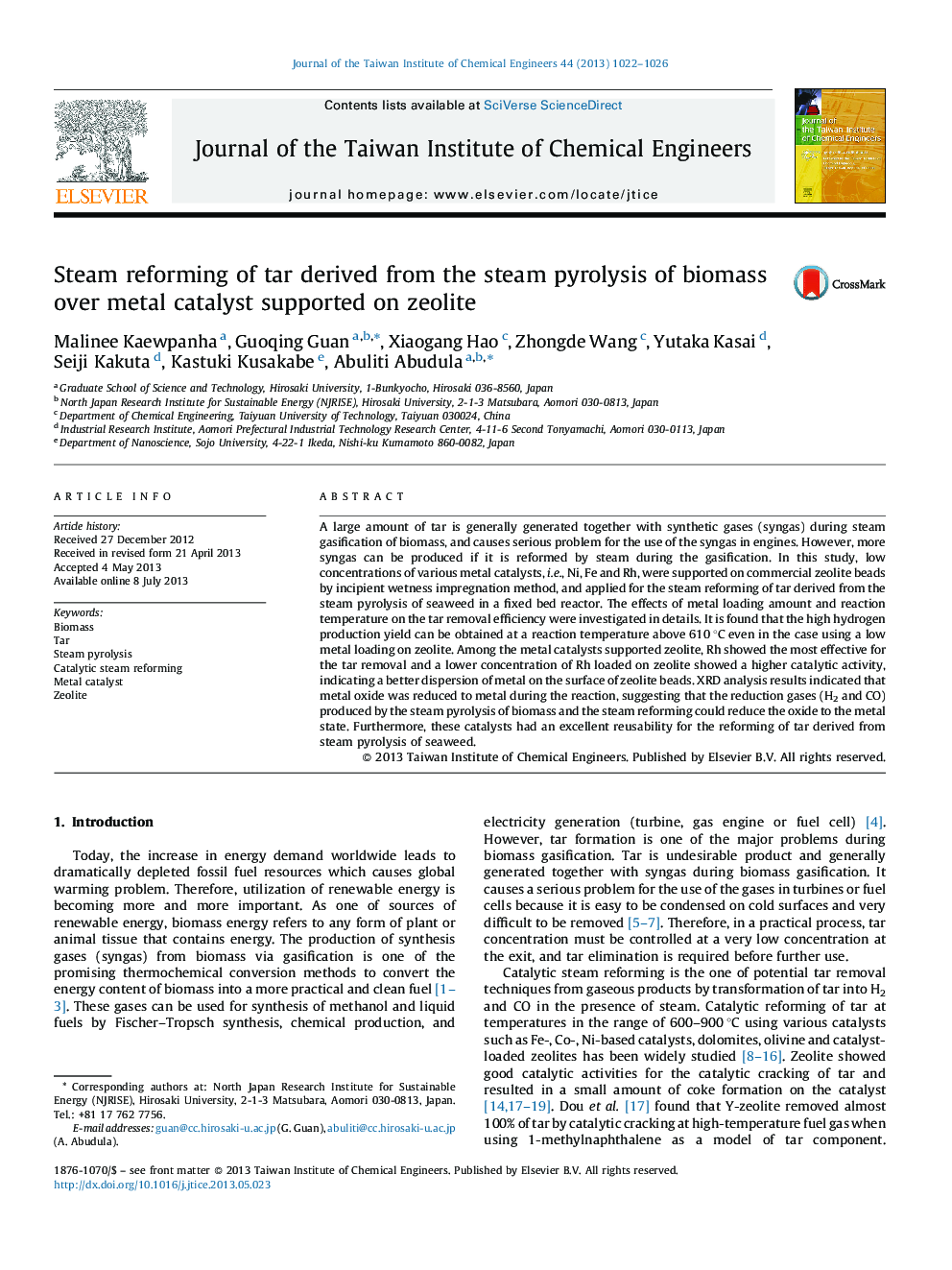| Article ID | Journal | Published Year | Pages | File Type |
|---|---|---|---|---|
| 691058 | Journal of the Taiwan Institute of Chemical Engineers | 2013 | 5 Pages |
Abstract
A large amount of tar is generally generated together with synthetic gases (syngas) during steam gasification of biomass, and causes serious problem for the use of the syngas in engines. However, more syngas can be produced if it is reformed by steam during the gasification. In this study, low concentrations of various metal catalysts, i.e., Ni, Fe and Rh, were supported on commercial zeolite beads by incipient wetness impregnation method, and applied for the steam reforming of tar derived from the steam pyrolysis of seaweed in a fixed bed reactor. The effects of metal loading amount and reaction temperature on the tar removal efficiency were investigated in details. It is found that the high hydrogen production yield can be obtained at a reaction temperature above 610 °C even in the case using a low metal loading on zeolite. Among the metal catalysts supported zeolite, Rh showed the most effective for the tar removal and a lower concentration of Rh loaded on zeolite showed a higher catalytic activity, indicating a better dispersion of metal on the surface of zeolite beads. XRD analysis results indicated that metal oxide was reduced to metal during the reaction, suggesting that the reduction gases (H2 and CO) produced by the steam pyrolysis of biomass and the steam reforming could reduce the oxide to the metal state. Furthermore, these catalysts had an excellent reusability for the reforming of tar derived from steam pyrolysis of seaweed.
Related Topics
Physical Sciences and Engineering
Chemical Engineering
Process Chemistry and Technology
Authors
Malinee Kaewpanha, Guoqing Guan, Xiaogang Hao, Zhongde Wang, Yutaka Kasai, Seiji Kakuta, Kastuki Kusakabe, Abuliti Abudula,
